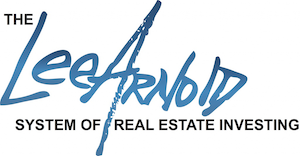Number One: Concentration on a Technique (Lease Option, Subject To, Foreclosure, etc.) Rather Than on Property
Successful real estate investors concentrate on the property itself, rather than on a specific technique. This not only allows the investor to concentrate directly on where the most profitability resides, but also opens a much wider array of potential “deals” for the investor to consider. Nothing drives me crazier than when I am out at events and I am meeting with a client and I say, “What do you do?” And they say, “I am a wholesaler.” Great, understand that wholesale is simply an entry strategy to real estate. It is also an exit strategy to real estate, but if you don’t come into the deal properly you are not going to be able to exit the deal properly. Wholesaling is just one method of going out and consummating a transaction, but wholesaling is only possible if you have a viable deal. I see too many investors putting their focus on the technique or the strategy and not enough focus on the actual deal.
What is the property? What is the lead source? Why have you made contact with this particular person? Why are they selling? What are the circumstances directly related to the sale or the liquidation of the asset? Why are they doing this? See, I am more interested in the seller’s story, the seller’s reason and the seller’s motivation than I am in your exit strategy or your specialty because you can’t use lease options, you can’t use commercial, and you can’t use property management.
You can’t use wholesaling as terminology in your repertoire, if you don’t have a deal. The deal dictates the strategy and not the other way around. Unfortunately you have spent tens of thousands of dollars on training and education on the strategy, but still have no idea how to source and season your deals. What do you mean by sourcing and seasoning deals? You get paid from the deal, not the strategy. If I were to come to your house right now and saddle up right next to you in the chair that you are sit-ting on and look at your computer screen and ask you to show me the marketing that is driving leads to your business, what are you going to show me?
To be successful at this, you would need to show me a mailing sequence where you have sent multiple mailers to a list of qualified people that you have done the research on and have phone numbers for. I would like to see next to the phone number notes that show and suggest that not only have you made the outbound dials, but you have actual-ly had conversations with people. You have scheduled appointments. You have met with those people at those appointments and you have written offers. Notice that in that entire sequence, that not once did I mention your strategy. Your entry, the seller’s needs, and the seller’s motivation changes and dictates the “how” you buy. You make money when you buy. You realize your investment when you sell. So the way that you structure the entry will more often than not dictate how you structure the exit.
Number Two: Doing Many Small Deals Rather Than Deals with Substantial Profit
Many investors, both experienced and new, are thrilled with a small, under $10,000 profit on each deal. Since unexpected expenses always seem to creep up when least expected, the actual profitability of these transactions range from half the expected profit to no profit. My rule? Never do anything unless it is going to make at least $20,000 net profit. Understand that this is only true on fix and flip rehab. The reason I say that is, I just did a deal where I wholesaled a property and made $5,000. There is nothing wrong with making $5,000 on a property that I had zero investment of time in, other than drop-ping my letter and meeting with the homeowner and negotiating the deal. I didn’t have to source capital, I never closed, I never took title, and I never took possession. I simply sold and as-signed my contract to another investor for a $5,000 assignment fee. In that instance, I am okay making less because my risk in the transaction is significantly lower. However, when you start talking about the acquisition of the real property, monthly debt service, contractors, insurance and liability exposure, cost of sale, and marketing ex-penses, then you better make at least $20,000 for that much investment of time, energy, effort, and risk.
Number Three: Having No Sustainable Plan
I want to make a lot of money is not a sustainable business plan. Know what you want to make and how you are going to make it and the time line that you are going to make it in. I teach at a lot of events and I talk to thousands of people every single year. The most frustrating part for me is when I ask the question, “What do you do?” And get the answer, “I am a real estate investor.” “That’s great, how much money have you made?” “I haven’t made any money.” “What is your strategy to make money?” “I have a few more classes I still need to finish.” No. You have all of the qualifications you need right now to go out and start sourcing deals. What you may not have is the where-withal to put the deal together once you have found it, but many of you are tripping over yourselves and you are letting the next step prohibit you from taking the first step.
I just had a Lee’s Inner Circle where about 18 people flew into Spokane and spent three days with me in the field. During that time, I kept getting hit with, “What if this?” and “What if that?” My answer to this is always going to be, “Well, what is the deal?” Show me the deal first and then we can talk about the ifs, and’s, or buts. Until you have the deal, I really don’t have an opinion because I can’t instruct you on a myth. If you want to start making money right now, you have to start sourcing and looking for deals, not worrying about where you are going to get the money or who is going to fix it up, or how you are going to get it sold? Things like the color of paint and carpet you’ll use, whether or not you need to replace the roof, whether you’ll have to rent it, and what you’ll rent it for don’t matter if you don’t have a deal.
Number Four: Trying To Do Deals With No Equity Contribution
Yes, it is possible to purchase real estate with no money. That being said, it is infinitely easier to successfully purchase real estate transactions when you have an equity contribution. When you put some money in a deal, three great things happen: Lenders become interested in financing your trans-action, sellers take you seriously and are willing to sell their property at larger discounts, and outside investors become attracted to your deal and a possible partnership. Doing deals becomes easier and much more profitable. Here is what you need to know about number four. An equity contribution helps and it greases the wheels of commerce better than anything that I have ever seen. Where a lot of people get hung up is they look at that fourth point and they realize they don’t have any equity and they say, “Are you telling me I can’t do this?” No, not at all. Here is what you need to know. Money is attracted to opportunity and if you’ve had a hard time getting people to buy into your vision, your company, or your deals, then you’re selling it all wrong or you don’t have great deals. Great deals attract capital. If you have a great deal, getting financing, getting funding, getting equity partners and getting equity contributions becomes very, very easy. But if you don’t have a deal they become very, very difficult.
If you feel like you need help with navigating your way through some of these four common issues, contact one of my Business Development Consultants at 1-800-971-5988.
To Your Success;
Lee A. Arnold
CEO
The Lee Arnold System of Real Estate Investing
To read more articles click here.


